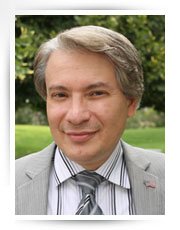Joined WSU in 2014 from Grand Valley State University, Michigan
A Fellow of the British Higher Education Academy, Joseph Iannelli is serving as the Associate Dean for International Programs for the entire multi-campus Voiland College for Engineering & Architecture at WSU and also as Founding Executive Director of the School of Engineering & Applied Sciences at WSU Tri-Cities. Previously, he served as Director of Grand Valley State University’s School of Engineering, in Grand Rapids, Michigan, and also as Director of the Centre for Aeronautics at the City University of London, UK, where he initiated a Master’s Degree program in Aeronautical Engineering. Dr. Iannelli’s career in higher education spans 25 years in Bachelor, Master’s, and Doctoral programs, including over a decade of leadership and managerial experience, supporting the teacher-scholar model and vigorously promoting success of students, faculty, and staff. Based on his collegiality-developed school-formation proposal, the School of Engineering & Applied Sciences at WSU Tri-Cities was approved by WSU’s Faculty Senate and Board of Regents and officially established. A passionate supporter of strategic planning and execution and an enthusiastic advocate for world-class research and learning in engineering and computer science, he has established several international education and research partnerships with overseas universities and internationalized engineering programs, placing US students in paid internships in Europe and securing for Engineering Faculty, Visiting-Faculty appointments in Germany and Switzerland. Recently, he has instituted the first Engineering international double Master’s degree program in the State of Washington, with the Zurich University of Applied Sciences, designed to foster international applied research and graduate globally educated professionals to assume leadership positions in technology-driven, multinational corporations. Enthusiastically, he continues to pursue international partnerships with renowned overseas universities and, of late, he has established an international partnership with the Technology University of Dresden, a recognized university of excellence, securing ERASMUS+ European-Union funding to support this partnership.






